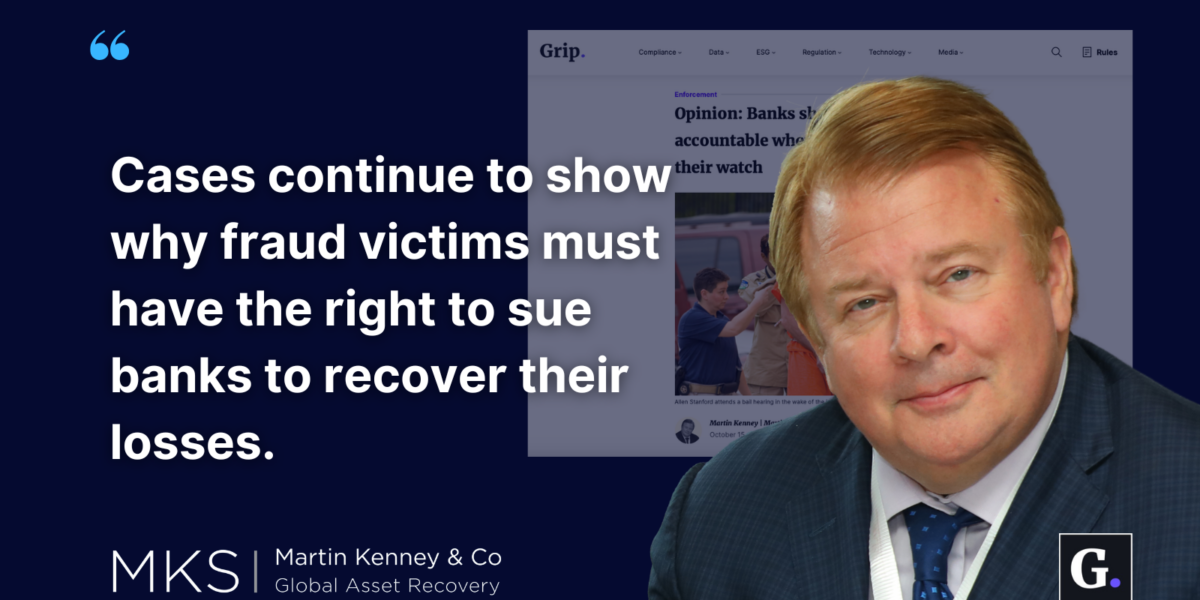Martin Kenney writes exclusively for GRIP on the failures of banks when it comes to fraud:
As asset recovery lawyers, we are tasked with recouping monies lost to fraud. One of the issues we constantly face is the shifting camouflaging of assets. These move not only between bank accounts, but across national frontiers. Fraudsters know this movement (and the “layering” of stolen assets) adds to the confusion when attempting to trace assets, placing additional hurdles between their victims and their money.
Under normal circumstances it is understandable if banking systems fail to pick up on transactions that could be considered suspicious by others. But there is a difference between systems failures and what judges point to as a form of dishonesty on the part of those who may be sued for facilitating a fraud – “wilful blind-eye knowledge of the obvious”.
It’s alarming how often we discover transactions that have managed slip through the regulatory net …
These cases all serve to underline why fraud victims must have the right to sue banks to recover their losses. Firstly, this provides a means of restitution for victims, helping them to recover their financial standing. And secondly, it acts as a deterrent for banks, compelling them to take their due diligence responsibilities seriously. If banks face significant financial and reputational risks for failing to prevent fraud, they are more likely to invest in better security measures.
Read more right now on GRIP.

